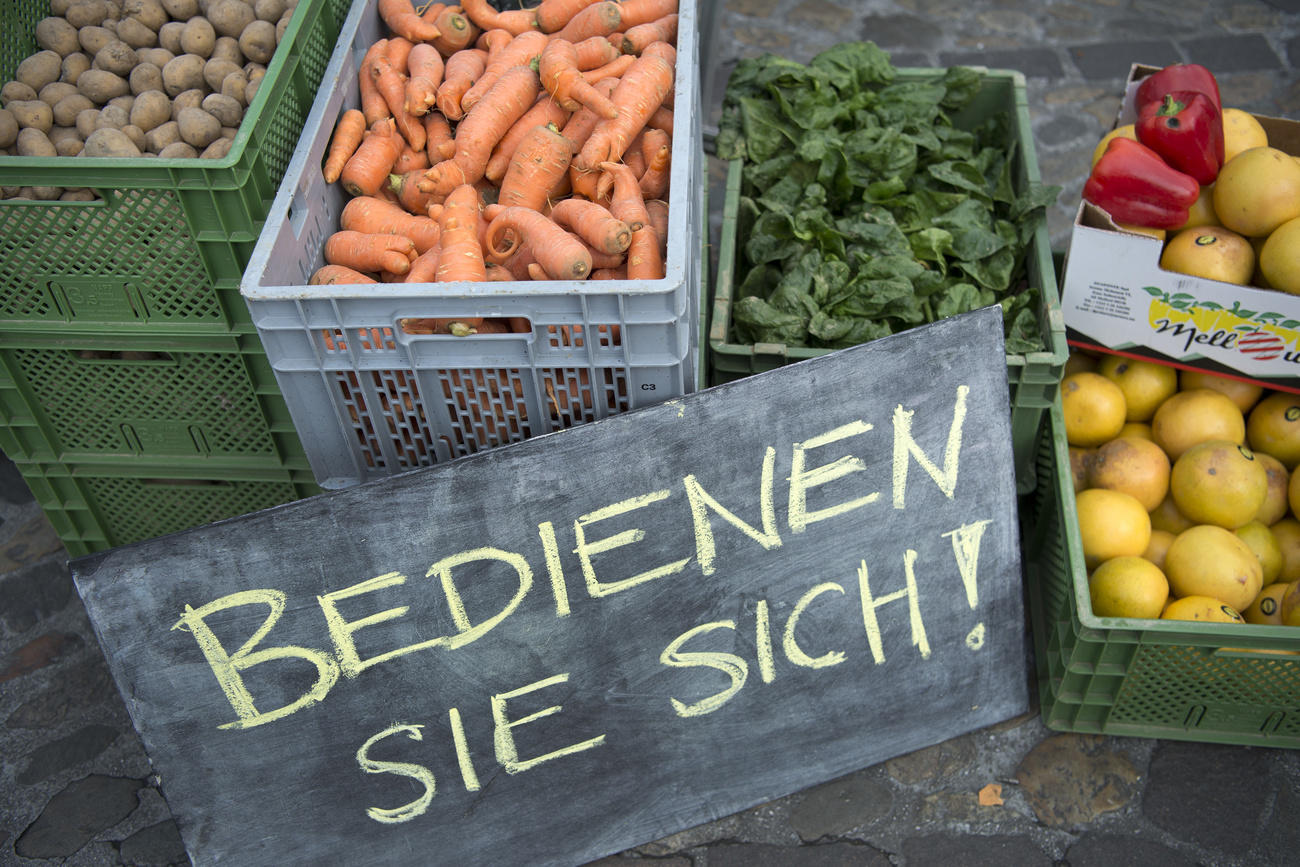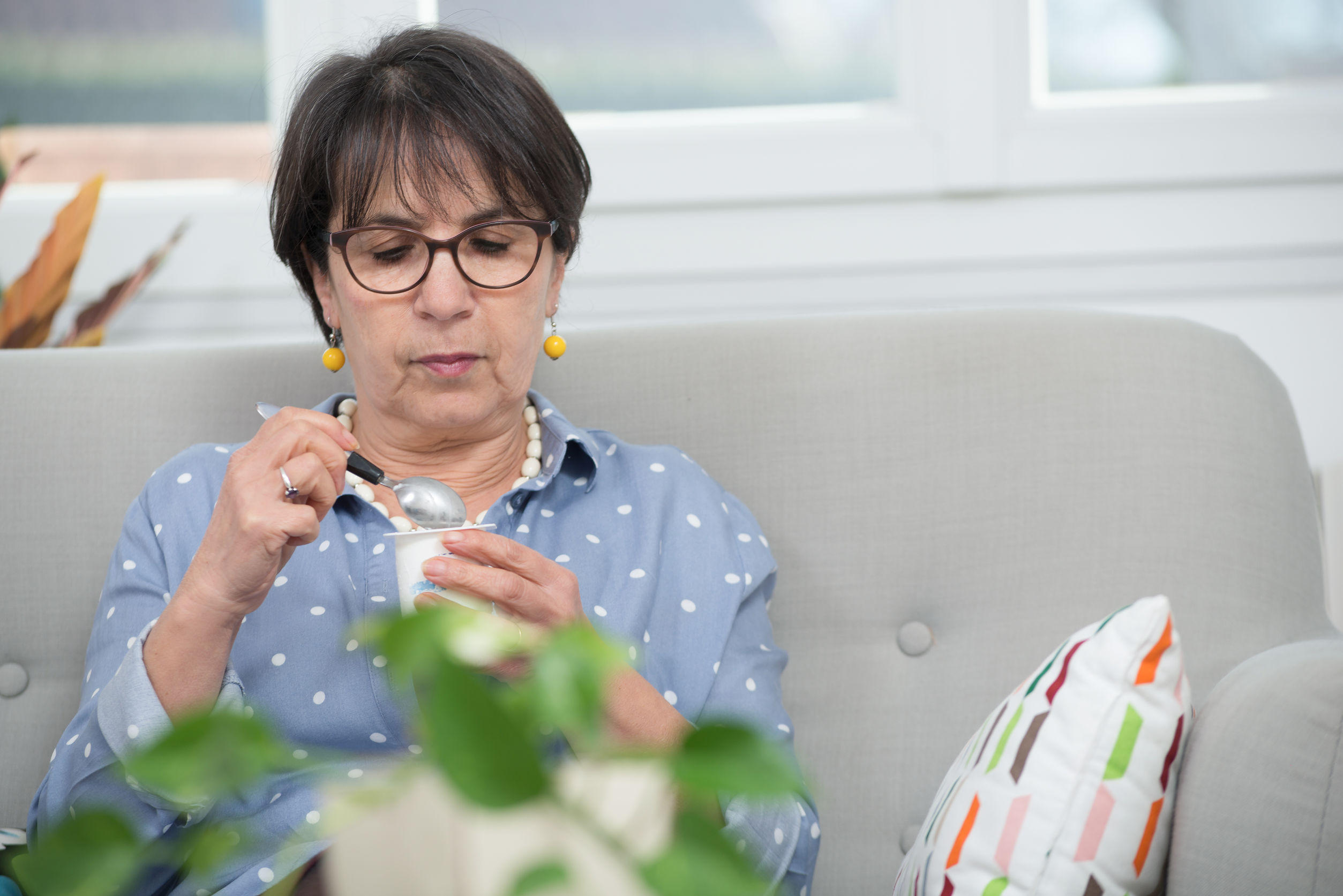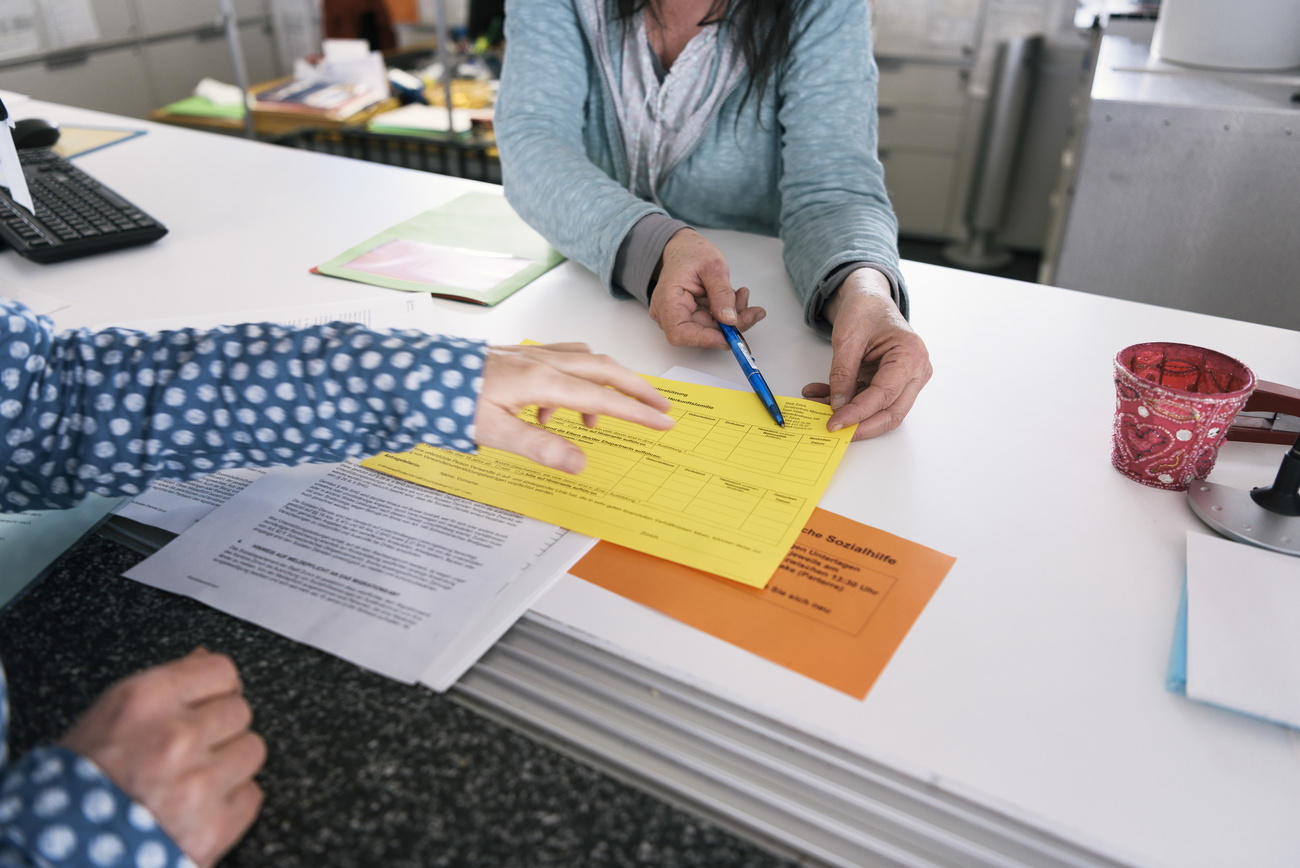Swiss public fridges cut waste and help the poor
In Switzerland, almost one in ten people suffers from or is at risk of poverty. In addition to the welfare system and the various foundations that help the most disadvantaged, more and more citizen initiatives are cropping up. One example is the Neuchâtel-based association Free Go, which was founded a year ago.
Behind a black screen, at the back of the Sym’Bôle association’s workshop, Lilian examines the shelves of a fridge. She chooses a few onions, a salad and a portion of lentils with chicken and puts it all in her bag, where she has already put some bread. This pensioner comes regularly to pick up free unsold items in the Free Go (a play on a French word for fridge). When she can, she deposits a coin in the piggy bank next door. “I find vegetables to make good soups,” she says. “Sometimes you can even find cakes!”
The supply varies from day to day, and the shelves are also often empty as free food is in demand. Volunteers collect unsold goods from the region and redistribute them in the four refrigerators External linkset up in the canton. “Our goal is to avoid food waste and to help people in need, while raising awareness of the effects of over-consumption,” explains Marilyn Béguin, president of the Free Go association.
The electricity consumed by the Free Go is paid for by the owners of the premises that house them. Temperature and content controls are also guaranteed, to ensure that only consumable goods are made available. For example, when collecting cooked meals, volunteers and partners ensure that they are kept at the right temperature so as not to damage the food.
The Free Go fridges are in discreet places, so as not to discourage people who would like to come and help themselves. As soon as new unsold items are placed in the cooler, an ad is posted on the Facebook pages of the places where the refrigerators are installed, and soon afterwards, everything found a taker. are installed in discreet places, so as not to discourage people who would like to come and help themselves. As soon as new unsold items are placed in the cooler, an ad is posted on the Facebook pages of the places where the refrigerators are installed, and soon afterwards, everything found a taker.
Food and poverty: a complicated relationship
“We’ve experienced hardship and we know people who suffer from it. We work in the social field, so on the one hand we see everything that is thrown away and on the other hand we are in contact with these people on a daily basis,” say the founders of the association. “We receive grateful stories from people who have been able to prepare a meal thanks to our unsold goods. But it’s hard for us to be proud of this action, because for us it’s a matter of course.”
Offering healthy dishes and local food to people in need has an impact. As income and consumption surveys show, in times of crisis people often economise on food. However, the Swiss Nutrition Society warns that low-cost food has a high energy density but a low nutrient density. Not surprisingly, obesity affects the poor first. The World Health Organization has already sounded the alarm about malnutrition among the low-income population.
Too much waste
Every year, Switzerland produces 2.6 million tonnes of food waste. According to the Federal Office for the Environment, two-thirds of this waste could be avoided, since it is food that is still edible when it is thrown away. Households, restaurants and shops are responsible for 54% of this waste. It is from them that the Free Go association obtains its supplies. It has succeeded in convincing nine local partners to donate their unsold goods: the ready-made meals come from a communal kitchen, while the bread and vegetables are collected from local shops.
Several other initiatives to counter food waste have been put in place in Switzerland. The country has committed itself to significantly reducing food waste, within the framework of the UN’s Agenda 2030. Unlike “Too Good to Go”, which offers to buy unsold food at reduced prices and at Caritas grocery stores, to use Free Go you don’t need a membership card or a credit card.
Free-access refrigerators seem to be a democratic and accessible means of combating food waste, to the point that they are flourishing all over the country. In German-speaking Switzerland, the concept was launched by the association Restessbar.ch, while several towns in French-speaking Switzerland are currently considering installing them.
No sooner had it marked its first anniversary than the Free Go association launched a fundraising campaign to finance the purchase of a cooling unit. “This will enable us to collect more hot meals from day-care centres and old people’s homes, for example,” explains Marilyn Béguin. Lilian and the other people who rely on the unsold food will be delighted.













You can find an overview of ongoing debates with our journalists here . Please join us!
If you want to start a conversation about a topic raised in this article or want to report factual errors, email us at english@swissinfo.ch.